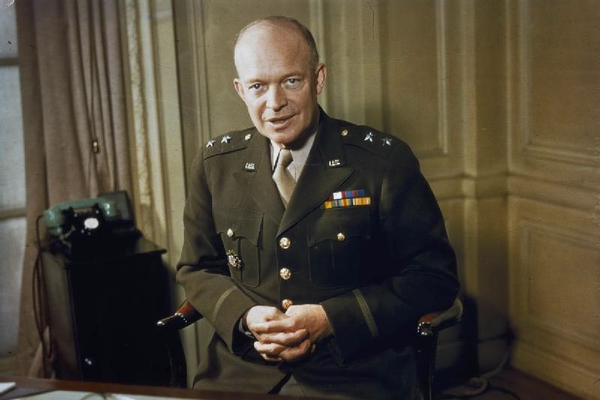Could Eisenhower have been impeached in 1960?

As the U.S. House of Representatives moves inexorably toward adopting articles of impeachment against President Donald Trump, law makers and media mavens make frequent mention of the two impeachment trials and the one near-impeachment in American history: Andrew Johnson and William Jefferson Clinton, and of course Richard M. Nixon. Not once has the name Dwight D. Eisenhower been said. And yet…
On May 1, 1960, a Russian missile shot down the U-2 spy plane flown by Francis Gary Powers. Against all the odds, Powers managed to squeeze himself out of the plummeting cockpit and parachute to capture, confession, and incarceration. Soviet Premiere Nikita Khrushchev with a mixture of glee and outrage released the news piecemeal over the following week: Soviet air defenses have shot down a U.S. spy plane; we have parts of the plane; we have the pilot and he’s still alive; the pilot has confessed.
As Khrushchev spoon-fed the details during the early days of May, the U.S. State Department and intelligence agencies were forced to flex to the gathering storm, revising the official story from day to day. Initially, the flight was a NASA-instigated study of high altitude weather conditions that strayed into Soviet airspace. By May 9th the Eisenhower Administration was admitting to “extensive aerial surveillance by unarmed civilian aircraft… normally of a peripheral character but on occasion by penetration.”
President Eisenhower’s one imperative is encapsulated in another portion of the same statement: “Specific missions… have not been subject to presidential authorization.”
According to journalist James Bamford’s 2000 authoritative history of the National Security Agency (Body of Lies), this was a bold-faced lie. To the contrary, over-flights of the Soviet Union, beginning with bombers during Ike’s first term and shifting to U-2s in 1956, were always initiated with the direct knowledge and personal approval of President Eisenhower.
As the administration’s prevarications were sequentially exposed, first by the Soviet premiere, and then by the pilot himself, the Senate Foreign Relations Committee leaned closer and closer into launching an investigation. Ike had to grin and bear it, pretending to embrace a Congressional probe. Behind closed doors he seethed and shuddered at the thought.
Bamford writes, “According to top secret documents obtained for Body of Secrets, Eisenhower was so fearful of the probe that he went so far as to order his Cabinet officers to hide his involvement in the scandal even while under oath.”
And did they obey his order?
Most witnesses gave the Senate committee “just gobbledy gook,” in the words of Under Secretary of State C. Douglas Dillon. However, when his boss, Secretary of State Christian Herter, was asked by Chairman J. William Fulbright if there was “ever a time” when the president approved a U-2 flight, Herter answered, “It has never come up to the president.”
According to the U.S. Justice Department’s Criminal Resource Manual, “To establish a case of subornation of perjury, a prosecutor must demonstrate that perjury was committed; that the defendant procured the perjury corruptly, knowing, believing or having reason to believe it to be false testimony; and that the defendant knew, believed or had reason to believe that the perjurer had knowledge of the falsity of his or her testimony.”
If Bamford’s book got it right, all the elements of the crime, as described by the DOJ, are met.
Why did Ike do it? Two possibilities present themselves. First, like all lame-duck presidents, he planned on preserving his legacy as best he could in the face of a foreign policy debacle, in his case made more acute by the failed Paris summit meeting with his Russian counterpart that followed hot on the scandal’s heels.
Second, his anointed successor, Richard M. Nixon, was in the political fight of his life against Senator John F. Kennedy.
The parallels to the pending impeachment of Donald Trump are compelling, leading me to wonder whether Eisenhower was as deserving of impeachment as Trump.
Eisenhower’s approval of the U-2 incursions was motivated by genuine national security interests, albeit his subornation of perjury was primarily politically motivated. One could contend national security and political interests more or less coincided. In Trump’s case, the two sharply diverged from the get-go.
Still, at bottom, this seems to me a comparison of the pot and the kettle, with the pot making a clean getaway while the kettle faces impeachment.